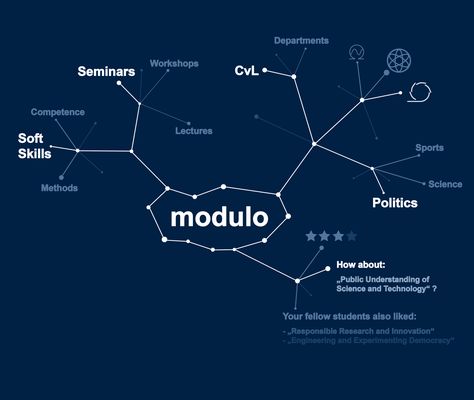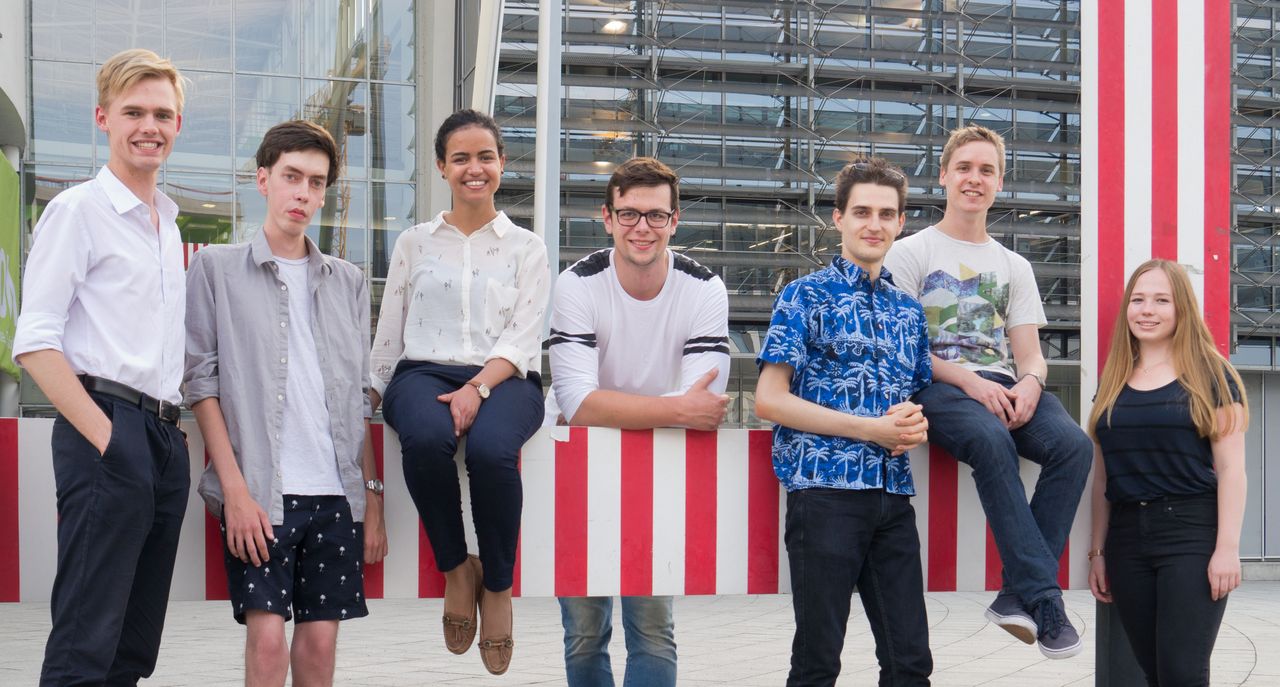Project description
Background
In the past, almost every curriculum at TUM contained credit points that students needed to obtain in interdisciplinary courses. While this was beneficial, the broad range of courses often perplexed students during their selection process. Consequently, we aimed to develop a tool that, based on user preferences, recommended the most suitable options to them. The envisioned tool was designed to ease the decision-making process for students by incorporating Artificial Intelligence (AI). Essentially, an algorithm matched specific user inputs, such as a student’s interests, with the available course database. The real intelligence emerged when users provided feedback on the recommendations, enabling the system to 'learn' which topics and consequently, which courses were more interrelated and likely to be appropriate suggestions. As the system was used more frequently, the accuracy of its recommendations improved.
Goals and methods
Our primary objective was to understand the decision-making processes of TUM students and translate this understanding into an intelligent recommendation system. We narrowed our focus to the department of electrical engineering to minimize time spent on implementation and data collection. Depending on our project's success within this subdomain, the results might have been broadened to encompass the entire university. We employed qualitative interviews to analyze our findings. By assessing these interviews, we continually refined our recommendation system. Simultaneously, we maintained consistent communication with university stakeholders, enabling us to detect potential barriers (such as legal ones) early and navigate our project efficiently within the existing framework. Additionally, we diligently documented the project's progress, which provided insights into the decision-making processes of developers creating similar recommendation systems.
Outcome
We implemented our prototype, factoring in the insights gained from the preliminary interviews. While the Graphical User Interface (GUI) wasn't of the highest quality, essential functions were operational. We also incorporated the artificial intelligence component, allowing our system to offer progressively improved suggestions based on previous users' feedback. It became evident that comprehensive testing and evaluations were on the horizon. It wasn't deemed a significant drawback that not every desired functionality was present in this version.
Summary and future goals
Steady progress characterized our project. Whenever we required data access, initial reactions often leaned towards skepticism. We consistently needed to enlighten and persuade individuals to delineate what was legally permissible. While such caution was expected and even deemed necessary, it underscored the importance of involving all stakeholders. Thus, one of our subsequent objectives was to present our findings to decision-makers at MCTS and collaborate with them to determine which data might be feasibly and sensibly integrated into our algorithm.
In addition, we planned to initiate usability studies for our system, gathering student feedback to pinpoint areas needing enhancement. Only after these preliminary surveys were conducted and our prototype refined accordingly did we believe it was appropriate to launch comprehensive user studies. This subsequent step aimed to evaluate our system's efficacy in assisting students with course selection.

